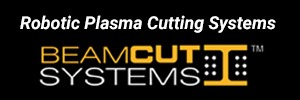HIRE FOR YOUR FACTORY’S FUTURE
How to develop and nurture your own innovation hub.
Posted: January 14, 2020
In the factory of the future (FoF), technology will of course be key. Factories will integrate networked machines, sensors, and advanced robotics IT systems into existing processes. They’ll use data, real-time figures, and unprecedented access to information to be more efficient, less wasteful, and better connected.
As your operations transforms, you’ll need a workforce that knows how to take your business into the future time and time again. This means you’ll have to rethink how you recruit and hire new employees as well as upskill your existing team. Fortunately, you don’t have to start from scratch. You may already be well on your way to having an optimal workforce.
THE SKILLS YOU NEED ARE CHANGING
You may already be using technology to move forward. As factories shift to a future focus, they’re adapting what’s already available – like the cloud, robotics, and in-process measurement. This brings with it new skill requirements.
Knowing how to use these tools to their full potential means having a team of critical thinkers. You’ll need employees who are computer-savvy and driven by problem-solving. They’ll need sharp analytical skills to interpret and exploit data to continuously improve production processes.
Effective teams also need software-development skills and programmable logic controls (PLC) experience. You’ll need employees who can network machines and identify and exploit automation opportunities. They’ll have to be comfortable with fluidity, able to conceptualize cross-functional solutions and collaborate to make the most of complementary capabilities. Like a software programming team, they’ll need agile minds, to be open to new approaches, and ready to adapt to work smarter.
In short, you need a workforce capable of acting as an innovation hub.
HOW TO ACHIEVE THIS OUTCOME
Finding and hiring these people will mean understanding what’s involved in their different roles. You’ll probably find you need to fill a mix of existing and new positions, some of which you might not have come across before.
Look for employees with a science, technology, engineering, and mathematics (STEM) background, who are more and more likely to be university graduates. But education is just a starting point. Look for applicants who demonstrate lateral thinking and problem-solving skills, signals that they can put their technical background to practical use.
Existing roles are evolving. Machinist skills such as operation monitoring, systems evaluation, and quality control analysis can be applied to new systems. Tool and die makers can use their technology design and operations analysis background to build better processes and create new tools. New roles will also appear: robotics engineers, automation engineers, and roles that combine elements of both.
Consider creating positions that will bring new ideas to your business. IT leaders such as a chief technology officer (CTO) or chief information officer (CIO) can champion and manage innovation, sourcing, internally promoting, and working to implement best practices throughout the factory. They can also spot candidates with the necessary expertise to move your business forward.
Specialized recruiting agencies can make sure you interview candidates with the right combination of technical know-how and creativity.
ONCE YOU’VE GOT THE RIGHT TEAM, NURTURE IT
In the FoF, the focus is shifting from working the production line to building a better one. Automation and robotics have changed how the factory floor looks, and those changes will keep coming.
Just as with technology, setting yourself up with the right people doesn’t have to mean starting all over again. Being clear about where you’re going and how you’ll get there is the best way to identify potential in your existing workforce.
Prioritize training. Most manufacturers will need a training officer, not only to train staff on existing production methods but also to bring them up to speed on new operations.
Empower your people to work together. Collaboration should apply across the entire operation, from learning how to use existing equipment to implementing new products. A team of champions will work side by side to ensure every operational element adds value and is working to its full capability.
Engage them. Use your trainers and tech champions to communicate your vision for the future. Excite – and motivate – them by providing direction.
With competition increasing, the most important thing is to retain skilled people. The next generation demonstrates more of these diverse skills, but increasing demand means there’s a global skills shortage. Finding and keeping good staff will make your workforce more efficient and save on hiring and training costs.
Giving employees opportunities to try out new tasks, upskill in their existing roles, undertake further education, and take ownership of their role in implementing change will strengthen their loyalty.
GIVE YOUR TEAM THE TOOLS TO PERFORM
Having the best brains in the business won’t mean anything without the best tools. A team with great problem-solving skills can work together with machine manufacturers to create custom systems for the best output. The combination of analytical minds and high-level engineering means a flexible, adaptable system with endless potential.
Supported by internal champions, new products can be implemented with enthusiasm and real buy-in from your workforce. That means continuous improvement with a loyal team as your factory moves ever further into the future.













